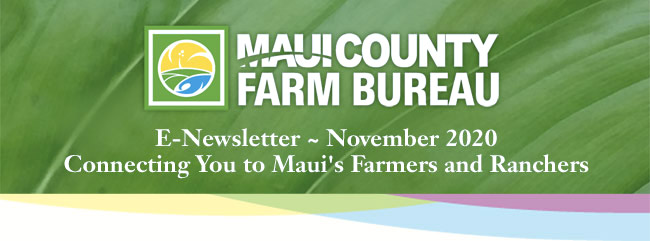

| We are near the end of 2020, and this has been a year of many challenges for our members. The many issues confronting us have tested our resolve to remain vigilant and focused on efficiencies in our operations. |
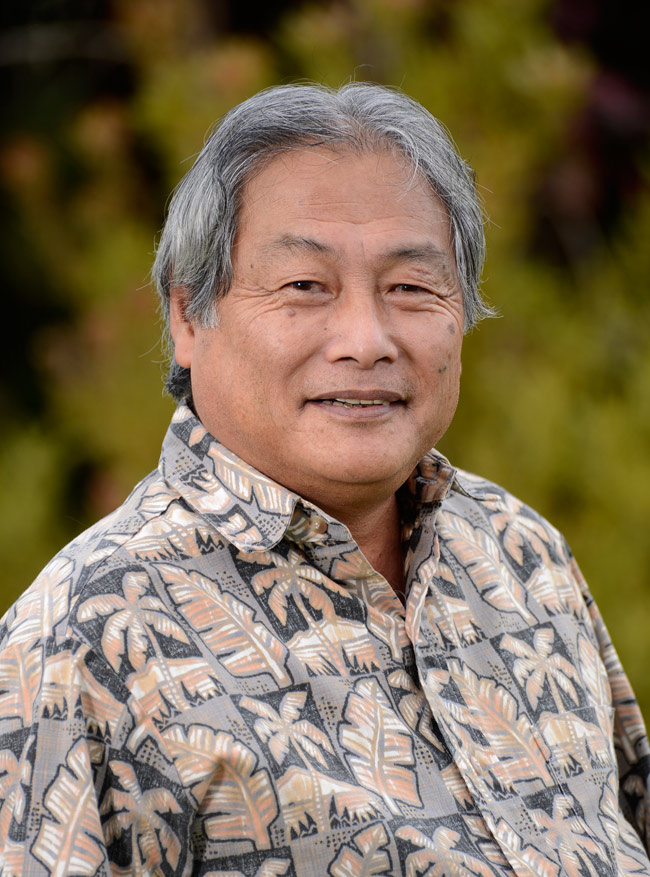
The year started as any normal year. But things changed dramatically as the coronavirus began to take hold in Hawai‘i, the U.S., and around the world. This novel virus was new to everyone, and science knew little about it. Our members’ sales decreased to serious levels, and the focus turned to our producers. We all are aware of the many government assistance programs, and we are truly grateful as our members would have found it extremely difficult to remain in business without them.
| Our members have also had to deal with the weather. Having been in business for years, our members understand that weather is unpredictable and have adjusted to deal with it. It is part of farming and ranching. However, this has been a tough summer and we are just getting out of a severe drought. Of all the counties, Maui County was hit the most severely with the dry weather. Invasive pests impacted many of our members. Feral animals remain a huge problem for farmers and ranchers with the high populations of deer and pigs. They cause damage to crops and reduce the quality of pastures. MCFB, PICHTR, SWCD, CTAHR, NRCS, DLNR, DHHL, landowners, and others are hopeful that we will be awarded a federal grant for feral swine management. The recently discovered Coffee Leaf Rust is a new disease that could have severe consequences for Maui and the state industry. This demonstrates again the vulnerability of agriculture to new introduced pests for all sectors. We must always stay abreast of any new pests and move for eradication before these pests become established. These are just a few of the ongoing challenges for our commercial producers in 2020. It has been a tough year, but our members have proven themselves to be professionals in dealing with everything that is thrown their way. We still have a month to go, and I am confident that all of our members will continue to stand strong and be even better in the new year. Warren K. Watanabe Executive Director |

Meet Tim Stevents, Treasurer
For Tim Stevens, the year 2020 has had a silver lining. Serving on the board of Maui County Farm Bureau as Treasurer, Tim has been part of enabling hundreds of thousands of dollars to be distributed to local farmers in the face of the Covid-19 crisis.
“It is great to be in a position to connect with other farmers and help drive the interests of agriculture in Hawai‘i and specifically Maui County,” Tim says.
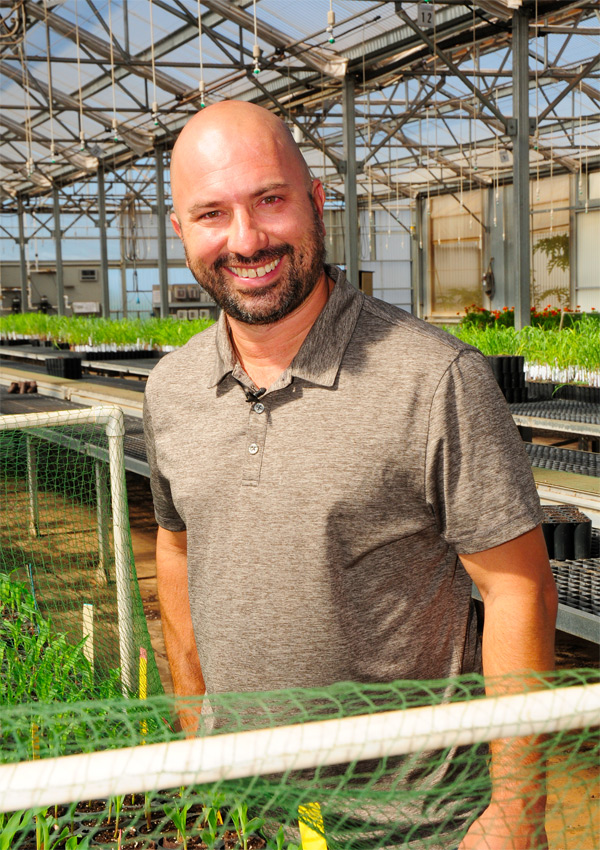
Tim’s interests lie specifically in crop science, with his current position as the site enablement lead for Bayer’s Kihei site. He began his career with Bayer Crop Science (then Monsanto) on the research corn farm after moving to Maui from New Jersey in 2003. After holding various roles at the Kihei site, he assisted in the relocation of some of Bayer’s corn breeding programs to O‘ahu where he enrolled in graduate classes at the University of Hawai‘i Manoa while assisting with the opening of the Bayer Kunia site. He returned to Maui in 2013.
| Tim previously held the role of Protected Culture Lead where he was tasked with expansion of the program responsible for growing Bayer’s corn crops in both shade and screenhouses. In the farming community, Tim has served as sub chairs in the Hawai‘i Crop Improvement Association, along with his role in MCFB. |
“Since moving to the islands, my passion for farming in tropical agriculture blossomed as well as my desire to implement sustainable practices into Bayer’s farming systems,” he says.
Bayer Global is made up of three core areas of business: Consumer Health, Pharmaceuticals, and Crop Science. Bayer Hawai‘i is solely focused on Crop Science. To learn more, visit hawaii.bayer.us.

Bryan Otani, Owner of B. Otani Farm
As a fourth-generation farmer, Bryan Otani carries on the legacy begun by his great-grandfather when he came to Hawai‘i from Japan many decades ago.
“Legacy: something handed down from an ancestor or predecessor.”
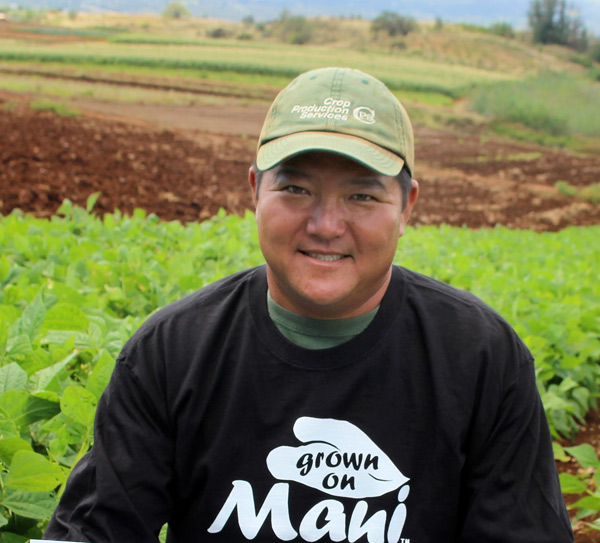
The Otani ‘ohana always made agriculture their career and lifestyle choice. That’s why Bryan’s father, Paul Otani, served as president of Maui County Farm Bureau for so many years. And it’s why Bryan Otani is so successful at what he does, managing B. Otani Farm in Kula with wisdom and patience, even in these challenging times.
Over the years, the farm has transitioned from potatoes and cabbage, to flowers, to Maui Kula sweet onions.
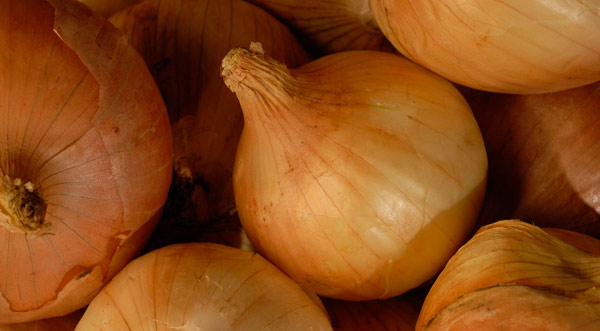
Why is agricultural work so valuable to the community? Simple, Bryan says: “People want and need to eat locally grown fresh vegetables.”
Today, Bryan manages all farm operations as well as sales and marketing for 45 acres of upcountry Kula land. He grows green beans, broccoli, multi-colored baby carrots, and Maui’s famous sweet onions.
The onions, which thrive in Kula’s climate and soil, are mostly hand-planted and hand-harvested. Bryan distributes them locally and also ships them to O‘ahu and California from April through January. The other items he grows and markets year-round, employing eight full-time workers to help with all the crops. Bryan says his dad Paul still helps out as well, although he is now retired.
Looking ahead, Bryan says he would like to see agriculture become a bigger part of the Maui community. He believes locally grown produce is the best, and B. Otani Farms is committed to providing it.
Bryan and his wife Melissa have two sons and a daughter who have grown up on the farm. The life of a farmer is never an easy one, but for the Otani ‘ohana, it is a legacy worth upholding.

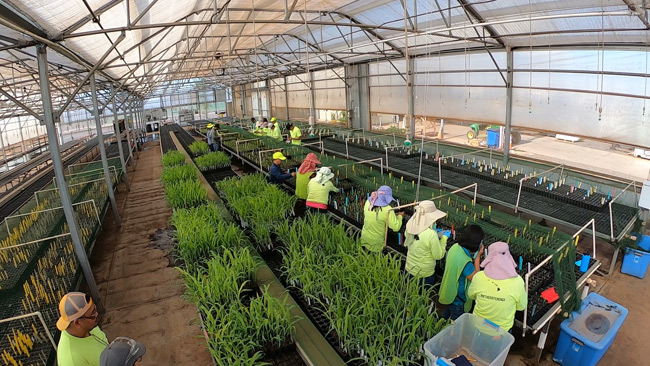
Growing Sustainable Ag in Hawai‘i for 50+ Years
Did you know Hawai‘i’s successful seed crop industry sprouted more than 50 years ago right here in Maui County?
In the 1960s, University of Hawai‘i plant breeder Dr. James Brewbaker recognized Hawai‘i’s potential to support a year-round growing season for seed corn, and Hawai‘i’s seed industry took root with companies like Molokai Seed Service and Trojan Seed on Maui.
Today, Hawai‘i’s seed farms continue to contribute millions of dollars to the local economy, employ hundreds of skilled agriculture workers, and support the islands’ agriculture industry and communities – all the while carrying out their primary purpose: to help agriculture be more successful.
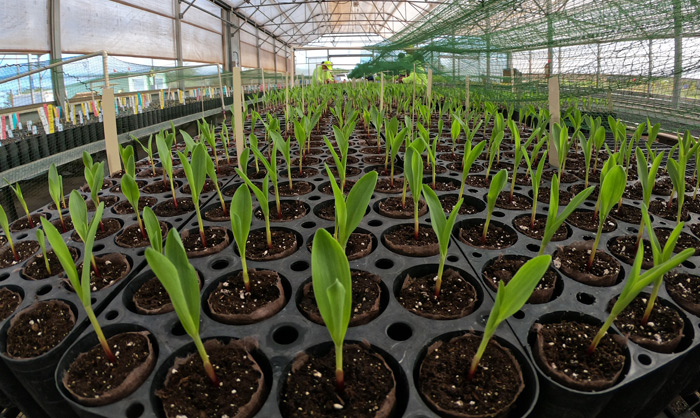
Globally, agriculture faces many challenges: from a growing need for food and renewable energies, to the impacts of climate change, devastating pests and plant diseases. In Hawai‘i, seed companies like Bayer work to help address those kinds of hurdles by embracing modern science and advancements in digital tools to raise crops more successfully and farm more sustainably.
For example, in 2014, Bayer Hawai‘i set a goal to increase its water efficiency by 25 percent by 2020. By implementing advanced irrigation management techniques at its farms, the company surpassed that goal and continues to improve its farming and conservation practices.
On Maui, Bayer has used shade houses for more than 10 years to plant seedlings before they are transplanted into the fields or screenhouses. Because they reduce exposure to insects, weeds and soil inconsistencies, shade houses provide higher germination rates while also reducing the use of natural resources and land footprint by more than 80 percent.
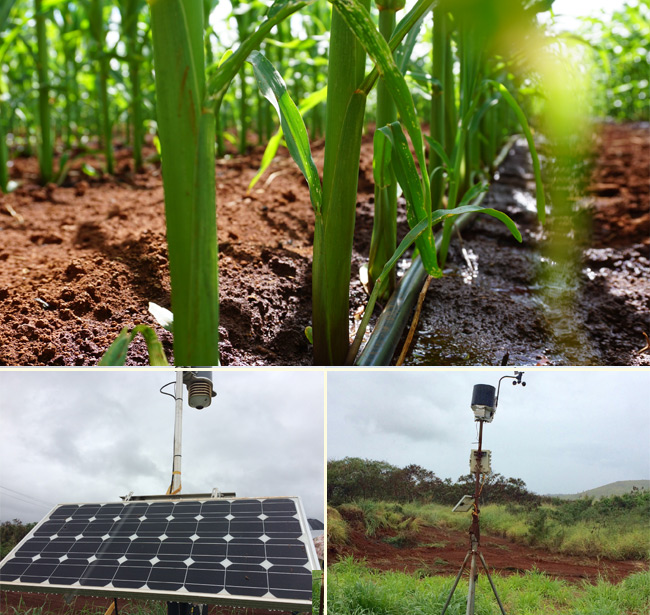
Some of Bayer’s other sustainability practices include using:
- Recycled water for all irrigation and non-potable water needs at its Piilani farm in Kihei and Upper Kunia farm on Oahu. This effort is estimated to have saved over 36 million gallons of unused recycled water from being discharged to the ocean. Using recycled water also supports Bayer’s cover crop program which helps to maintain a diverse ecosystem on the farm and replenish valuable soil nutrients.
- Drip tube irrigation that delivers water directly to the plant root zone and reduces the amount of water and fertilizer needed to produce a crop.
- Soil moisture probes, extending about three feet underground, that provide data every 15 minutes on root depth and water absorption activity to adjust irrigation recommendations as needed.
- Weather sensing networks that provide unique, real-time data that allow Bayer employees to calculate irrigation needs and build better irrigation systems and management practices.
- Satellite imagery, that provide valuable information on irrigation stress and plant health, and assist in management evaluations.
- Water automation software that brings together the data of all tools and improves irrigation water efficiency via a smart phone app.
Bayer Hawai‘i strongly believes in agriculture and the importance of preserving and protecting its island home. In addition to caring for its farmlands, the company contributes dollars and volunteer hours to an array of community service projects and educational programs, and has received multiple awards for being one of the best employers in Hawai‘i.

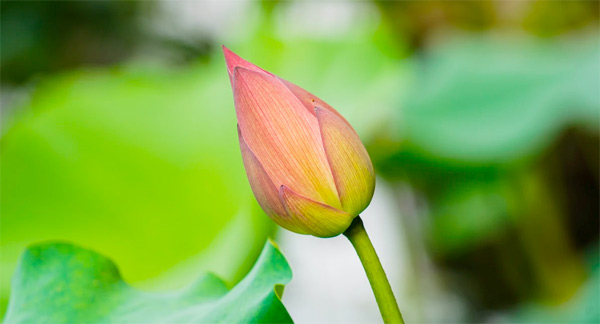
Membership – Time to Renew
We are so pleased to be heading into a new year with so many familiar people on board—and a dozen new members as well!
There’s never been a more important time to connect with MCFB. If you have not yet renewed your membership, there’s still time! Contact Lynne Woods, MCFB Membership Chair, via email at crash622@gmail.com to renew your membership.
We look forward to highlighting our new members in upcoming newsletters. For now, a hearty welcome to you all, and congratulations on joining a local grassroots organization that is 100% dedicated to you as a Maui ag producer.
As a member, you will enjoy all the support of MCFB programs and grants designed to benefit farmers and ranchers during tough times, as well as professional marketing support, lobbying and legislative backing, and more. New members, please follow the link: Become a Member
